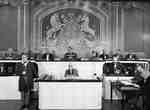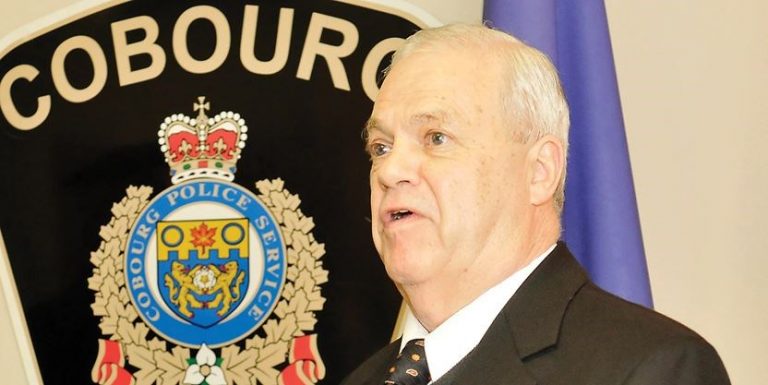
The issue of transparency in local government dates back to the earliest days of Cobourg. In 1831 edition of the Cobourg Star, one of the first and longest serving newspapers for the community, a letter to the editor refers to the need for a more open council.
Not much as changed in 180 years.
Still, municipal councils appear to get away with a lot because the public is ignorant of the rules and nobody really holds politicians or bureaucrats accountable. The issues made the pages of local newspapers this week as Port Hope council circulated its justification for closed door or in-camera meetings.
Take for example the budget process. One of the most important decisions made by a municipal council annually generally takes place behind closed doors and carefully guarded. Certainly, there is plenty of public huffing and puffing as councillors hand out stern warnings of pending targets and spending limits. But, rarely does the public see what choices the councillors and staff make as they wade through the wide range of options given to them.
It would seem reasonable the public should be able to watch each stage of the process. Once municipal staff comes up with a budget, then this document should be made public. Then, the discussion between politicians and citizens should begin. Residents must be allowed to say what is valued, what needs to be saved and what should be cut.
No doubt, there would be a host of mixed messages. But, at least we could watch councillors make the final choices and we would be able to judge them in the future when it comes election time.
So, why is this? And how did we get to this point?
About 20 years ago, the budget process was much different. The estimates and requests all came forward in a public manner. Then, the document would be sent back with some suggestions from council and staff would need to wrestle the final numbers into submission. A final document was presented and approved.
The problem was the original estimates often involved a wish list from bureaucrats that left taxpayers gasping. Massive tax hikes would make headlines in the local media. Of course, these were never approved. And, there was a small drama that would unfold, as politicians would pronounce the need for austerity.
However, the public outcry became louder and fiercer as years went by. Then, former Premier Mike Harris cracked down on councils through massive cuts to municipal programs. This meant council was left with a lot fewer dollars and an abundance of programs to slash.
Rather than do this in a public manner, politicians started doing it behind closed doors. And so the councils began the journey down the slippery slope of secrecy. There is nothing that places budget meetings. In fact, the Ontario Municipal Act (Section 239: 2-6) is very specific: legal matters, the purchase and sale of property and labour matters are the only reasons for a closed meeting.
Far too often councils leave the public in the dark about issues. Councils must make the subject matter of closed sessions public, but this is done via cryptic phrases. Then, there are the rules about voting in closed sessions preventing them from passing any motions. Still, it happens. Far more than it should.
Since politicians have no motivation to change, bureaucrats are the ones who must be held responsible. A civil servant’s first loyalty is to serving the public and adhering to the letter of the law and legislation. These people are as much to blame as anyone.
The only recourse may be to file lawsuit against a council before anything will change. With the new members on council after the November elections, it would be good to see some of them challenge the old guard.
Then, again, maybe the tooth fairy will save us all. One can only hope. It has only been going on 180 years.


